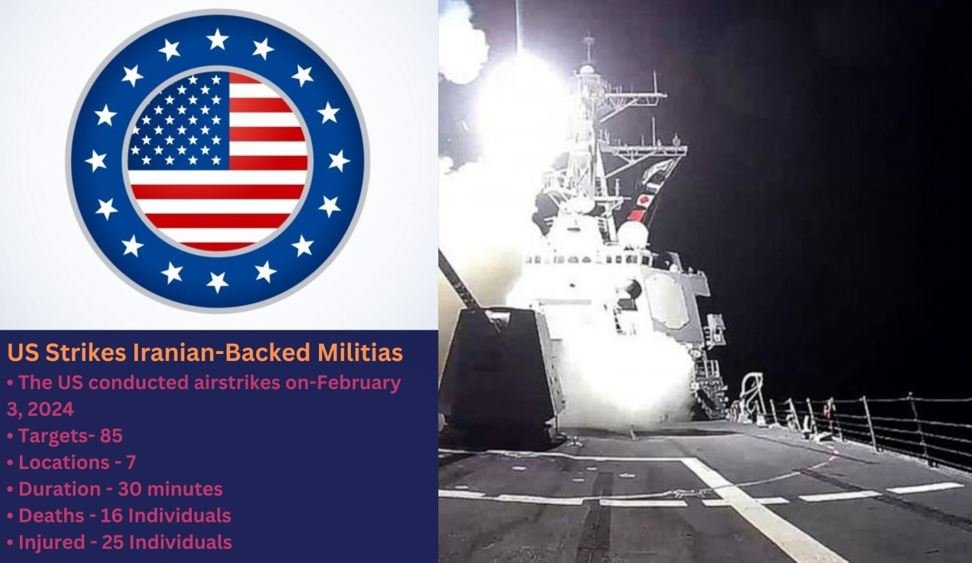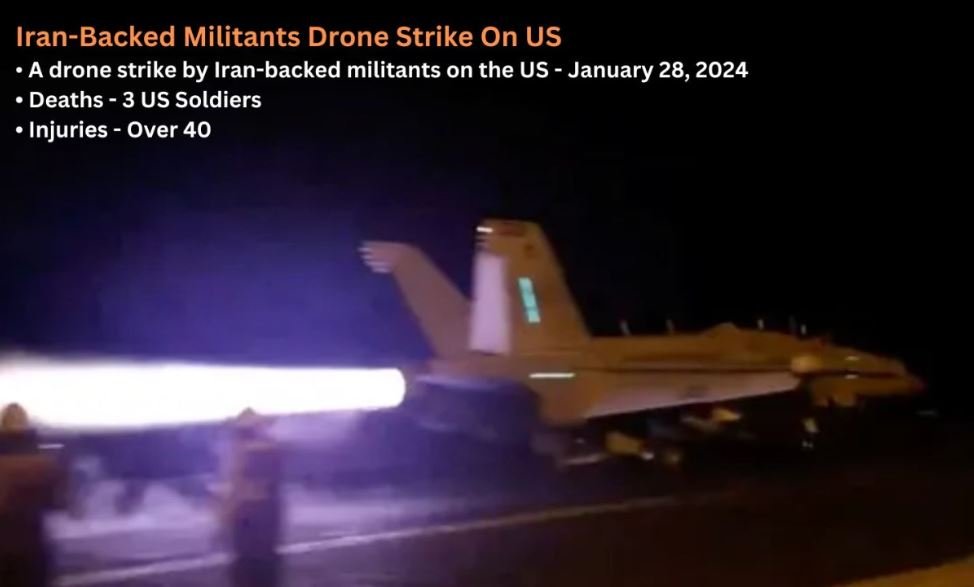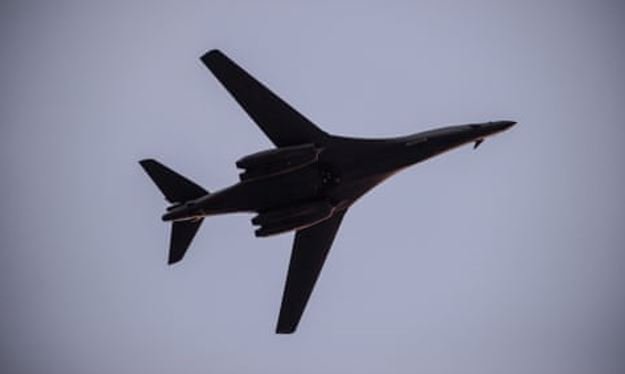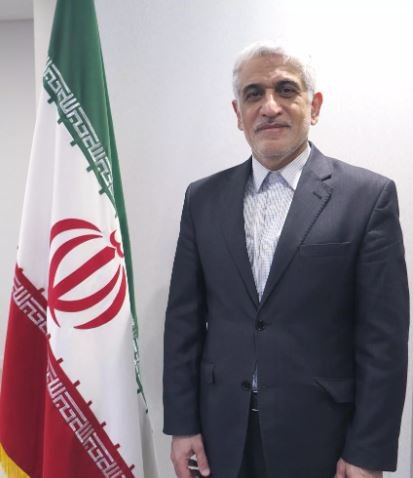While the US asserts self-defense, Iran insists on its innocence, attributing instability to US-backed Israeli actions
During the United Nations Security Council (UNSC) meeting on Monday (February 05, 2024), Russia and China jointly expressed condemnation for the recent air strikes conducted by the United States in Iraq and Syria. Both nations asserted that Washington’s military actions have heightened the risk of regional escalation.
You Can Also Read: Can China be the Global Role Model for Peace?
Russia further contended that the U.S.’s decision to launch the strikes appeared to be politically motivated, insinuating a link to the upcoming presidential election in November.
Moscow, amidst ongoing discussions at the UNSC regarding its invasion of Ukraine over the past two years, called for the council meeting following the US’s series of strikes against targets aligned with Iran in Iraq and Syria.The critique voiced by Russia and China emphasizes the divergent perspectives within the international community concerning the US’s military interventions in the Middle East.
However, the strikes were in response to a drone attack on a US base in Jordan on January 28, 2024, which resulted in the fatalities of three soldiers. Throughout February 03 and 04, 2024, the US military targeted numerous locations in Syria and Iraq.
US Strikes Iranian-Backed Militias
The US conducted significant airstrikes on 85 targets across seven locations in Iraq and Syria on February 03, 2024, marking the beginning of what is likely a series of larger-scale US strikes on Iranian-backed militias responsible for attacks on US troops in the Middle East.

The retaliatory strikes, lasting 30 minutes and deemed successful by the White House, were a response to a drone strike by Iran-backed militants on a US military outpost in Jordan on January 28, 2024, which resulted in the deaths of three US service members and over 40 injuries. President Joe Biden stated that the US military response “will continue at times and places of our choosing,” emphasizing the nation’s commitment to defending its citizens.
The airstrikes differed significantly from previous attacks on Iranian-backed militias, focusing on commandand control operations, intelligence centers, rockets and missiles, unmanned aerial vehicle storages, and logistics and munition supply chain facilities. While the administration aims to deter further attacks, it seeks to avoid escalating into a full-scale conflict with Iran, particularly amid ongoing tensions in the region.
US Central Command confirmed that the airstrikes targeted Iran’s Islamic Revolutionary Guards Corps (IRGC) Quds Force and affiliated militia groups in Iraq and Syria. Defense Secretary Lloyd Austin described the strikes as the beginning of the US response. The Syrian Ministry of Defense criticized the airstrikes, alleging civilian casualties and damage to public and private property.

Casualties of US Strikes
The Syrian military stated on Saturday that the US airstrikes resulted in the deaths of both civilians and soldiers and caused significant damage to infrastructure.According to Syria’s state-run news agency SANA, the airstrikes targeted areas along the Syrian-Iraqi border, including Deir Ezzor, Al-Bukamal, Al-Mayadeen, and their surroundings.
Iraq reported that the US strikes led to the deaths of at least 16 individuals, including civilians, and injured 25 others. Iraqi officials also noted that the attacks targeted facilities utilized by the Iranian-linked al Hashd al Shabi, also known as Popular Mobilization Units (PMU), in Al-Qaim.
The PMU, a primarily Shiite Iran-backed paramilitary force stationed in Iraq, is distinct from other Iran-backed groups in the region due to its ties to the Iraqi government and close affiliation with Iran-aligned Shiite blocs that have historically held significant influence in Iraqi politics.
These strikes occurred shortly after President Biden attended a dignified transfer and met with the families of soldiers killed in Jordan.

Photo Credit: Kent Horner/Getty Images
The operations involved B-1 bombers, long-range heavy bombers capable of deploying both precision and non-precision weaponry, as confirmed by a defense official to CNN. The official further stated that the bombers embarked on a single non-stop flight from the US, facilitated by the capabilities of Transportation Command to refuel along the way.
Iran Condemns US Aggression
“It is evident to everyone that the root causes in the region are occupation, aggression, and continued genocide and horrific atrocities committed by the Israeli regime, and fully supported by the US, against innocent Palestinians in the Gaza Strip and West Bank.”
– Saeid Iravani, Iranian Ambassador

Saeid Iravani, the Iranian ambassador, asserted that the US assaults breached international law, characterizing them as a “desperate ploy” to divert attention from the core issue of ongoing regional turmoil – the US-backed Israeli offensive in Gaza, resulting in the deaths of over 27,000 Palestinians.He dismissed allegations of attacks on Iranian bases in Iraq and Syria as groundless and aimed at diverting attention from US aggressive actions.
Iravani emphasized that the root causes of regional instability are occupation, aggression, and the ongoing atrocities committed by the Israeli regime against innocent Palestinians in Gaza and the West Bank, with full backing from the US.
Washington claimed its strikes in Iraq and Syria targeted sites associated with Iran’s Islamic Revolutionary Guard Corps, which has long supported an “axis of resistance” against US influence in the region.Tehran maintains that its supported forces in Iraq, Syria, Lebanon, and Yemen operate independently and denies any involvement in the attack on the US base in northern Jordan.
The US and UK have intensified attacks on Yemen, where the Iran-aligned Houthi movement seeks to disrupt global shipping routes to halt Israel’s offensive in Gaza.
Conclusion
The Iranian ambassador’s condemnation of US airstrikes emphasizes deepening tensions in the Middle East. While the US asserts self-defense, Iran insists on its innocence, attributing instability to US-backed Israeli actions. The divergent narratives highlight the complexities of regional geopolitics, posing challenges for diplomatic resolution amid escalating hostilities.


